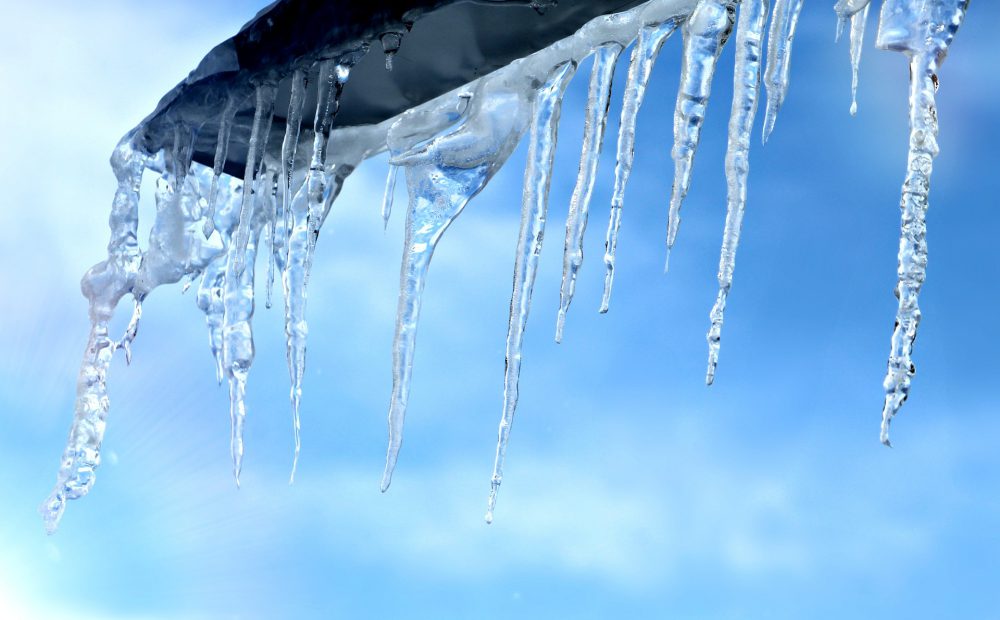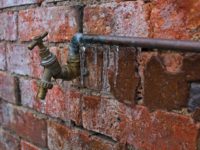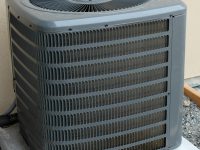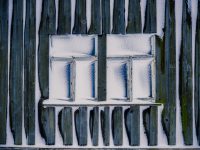What was it about winterize NOW that you didn’t understand? Well, you ignored us and now you’ve got a mess on your hands so what should you do? Don’t worry — actually, DO worry because you’re clearly not the smartest guy or gal on the block — Regardless, we’ve got your back — once again! — here are the top four things that can go wrong if you skip home winterization, and what to do to fix the problems:
- Burst pipes – As often happens during winter, the temperatures dropped below freezing and your pipes simply couldn’t handle the pressure. You’re left with a watery mess so what should you do?
Start by cutting off the water to stop further damage, and turn off the electricity until you know how extensive the damage is. Mop up the water using towels, newspaper, dry/wet vacuum etc, and use a dehumidifier or fan to dry out your home. While you wait for the pros to arrive, you can temporarily fix the leak using items found at your hardware store such as a sleeve or C-clamp. To prevent a burst pipe in the future, drain any outside pipes, and wrap exposed indoor pipes with pipe insulation. For those nights when you know the temps are going to drop below freezing, leave cabinets open so that pipes will stay warm naturally from the heat in your home. - Roof damage – The icicles hanging from your roof and gutters may look pretty, but they can wreak havoc on your roof. Ice dams form when snow melts and refreezes, blocking water from running off your roof. As the refreezing cycle continues, the water gets pushed farther back, potentially underneath shingles, resulting in a leak or a collapsed roof. If you spring a leak, use a wet patch or roof covering to stop up the leak, and immediately place a call to a roofer to have them come out and fix the problem.
Prevent floor damage by placing a bucket or towel beneath the leak to catch any falling water, as well as keep track of the leak’s location. If the leak is significant, there could be structural damage you can’t see. Watch for signs that a collapse is imminent such as sagging, cracking, or noises due to shifting. No matter how small or large the leak may be, it is better to be safe than sorry and call in a professional to assess the damage for the safety of you and those living in your home.To prevent future leaks, make sure your attic is insulated so that heat doesn’t escape from your roof, and be sure to clear off your roof after a heavy snow. - Furnace issues – The dead of winter is by far one of the worst times for the heat to go out. Sometimes it’s out of your control, but there are things you can do to help prevent it. You should be changing your furnace filter every month, especially during the winter when it is in high gear. A dirty filter is the most common culprit of a busted furnace and high energy bill, so don’t fall victim and change that filter.
- Fire hazard – Winter brings cozy nights by the fire, but if you don’t take the time to sweep out your fireplace, you could have a house fire. Before you light up the logs for the first time, have a professional clean your chimney and check for any damage. For extra precaution, install a spark guard to prevent a stray ember from making its way into your home.
Should tragedy strike and a fire break out that a fire extinguisher can’t safely handle, evacuate your home immediately and contact the fire department. The fire department will mark off any areas of significant damage, so be wary of these locations when entering your home. Contact your insurance company to determine how to go about documenting the damage before you begin the clean up. Smoke and soot clean up can be completed yourself, but any structural repairs, electrical work, or plumbing should be left to a professional. If you are unable to stay in your home while repairs are being made, bunk with a friend or family member, or relocate to a hotel room until it is safe for you to return home.
If you let it, winter can definitely be brutal on your home and your wallet. Neglecting to prepare is the worst thing you can do. Trust us, you’ll feel like a real doofus when there’s water pouring into your bedroom because of a burst frozen pipe. Just a few simple steps can save you a lot of headaches and costly repairs.








